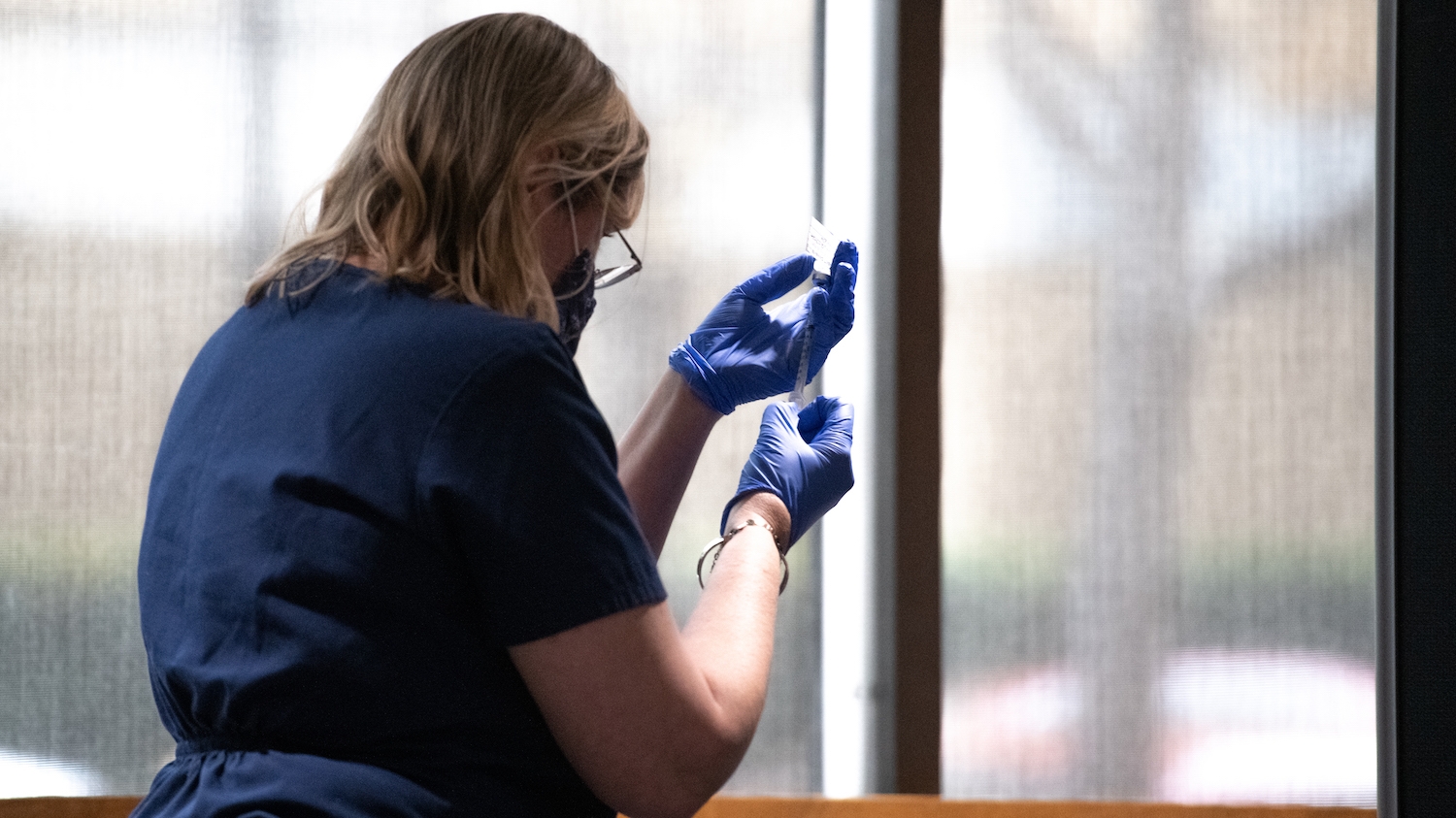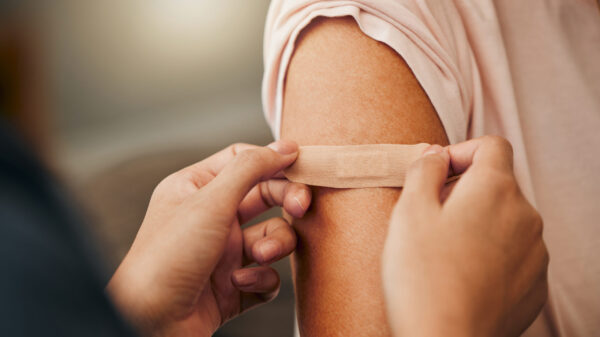Beginning Friday, a large number of adult Alabamians can get a third booster shot of Pfizer’s COVID-19 vaccine, but not everyone is eligible to get the extra shot.
Alabama State Health Officer Dr. Scott Harris in a press briefing Friday discussed an early morning decision by the Centers for Disease Control and Prevention to broaden the number of Americans eligible for a booster shot.
The CDC’s Advisory Committee on Immunization Practices on Thursday voted to recommend boosters for those 65 and older and those living in long-term care facilities who were fully vaccinated with the Pfizer vaccine at least 6 months ago, in addition to those 50 to 64 with underlying medical conditions.
CDC Director Dr. Rochelle Walensky Friday morning announced that the CDC’s recommendations included those of the committee, but to those added people between 18 and 64 who are at an increased risk of COVID-19 because of their jobs, and for those between 18 to 49 who have underlying medical conditions. Walensky said boosters for at-risk younger workers puts the CDC’s recommendation in line with the U.S. Food and Drug Administration’s authorization earlier this week.
The action Friday doesn’t impact those who received either the Moderna or Johnson & Johnson vaccines. The federal regulatory agencies have yet to make decisions regarding booster shots for those vaccines.
Harris made clear that only those who were fully vaccinated with the Pfizer vaccine at least six months ago and met those other criteria, are able to get a booster shot, and said that while the CDC didn’t give clear guidance as to which workers were deemed at-risk and able to get a booster, the Alabama Department of Public Health would use the same guidance used when vaccines were first made available.
“That’s going to include healthcare workers and first responders. It is going to include educators and grocery workers. It’s going to include daycare workers,” Harris said.
The ADPH’s previous guidance on who was eligible for vaccines in February also included public transit workers, prison and jail workers, U.S. Postal Service employees, judges and district attorneys.
“If you have a job where you’re face to face, within six feet with lots of different people from lots of different households, especially if you don’t know their vaccination status, then you’re somebody that’s at significant risk,” Harris said later in the briefing.
Harris also discussed the state’s supply of life-saving monoclonal antibody treatments. The demand for those treatments, which can cut the need to hospitalize someone with COVID by 70 percent, is growing amid large numbers of COVID cases and the more contagious delta variant.
The surge in that use prompted the U.S. Department of Health and Human Services to stop allowing state medical providers to order the life-saving drug directly, and instead to require the Alabama Department of Public Health to divvy up the state’s supply among providers.
“We have had about three times as many requests for monoclonal as Alabama is going to have this week so it is a scarce resource. There’s not enough to go around,” Harris said.
Harris said the state this week received just under 6,600 doses of monoclonal antibody treatments but state providers had ordered approximately 19,000 doses.
The federal government has bought up the country’s supply of monoclonal antibodies made by drug-makers Regeneron and Ely Lilly, but there is a third maker, GlaxoSmithKline.
Harris said some states, including Florida, are buying monoclonal antibody treatments directly from GlaxoSmithKline.
“That is an option if we have access to funds to do that,” Harris said. “I guess that could be an option. We don’t have access to funding to do that at this point.”
Harris also discussed Alabama’s surging COVID deaths. The state leads the country in recent per capita COVID-19 deaths, according to tracking by The New York Times.
“We’ve had numbers the last several days of 123, 133, 205 people, 250 people, 161 people, 192 People,” Harris said. “These aren’t numbers or stats. These are our friends and our family. Our loved ones. These are Alabamians who are dying of COVID.”
Harris said at least 90 percent of those deaths are “completely preventable with vaccination.”
“There’s no reason that these people should have had to die,” Harris said.
It’s important to note, however, that most of the deaths added to Alabama’s official death toll over the past week did not actually occur within the last seven days. It takes time for the Alabama Department of Public Health to get a report of a COVID death, then confirm that death through medical records and interviews, and publicly post the data.
Of the 881 deaths added to the state’s data over the week ending Wednesday, 50.5 percent actually died in September, 48.4 percent died in August and 1.1 percent died before August 2021.
Alabama’s COVID hospitalizations have declined slightly in recent days, down to 1,731 on Friday, But Harris said that’s due in part to a rise in deaths, and expressed concern that the state’s ICUs remain full.
“We actually have two more patients requiring critical care than we have authorized ICU beds, so that’s a negative two capacity, which is still not a very good situation to be in,” Harris said.
To help in that fight, the Alabama National Guard is sending in small teams of health care workers to smaller hospitals in Troy, Monroeville and Demopolis, Harris said.
“We are using small teams at this point in trying to be very deliberate about plugging them into the places where they can best fit, and where we need them the most,” Harris said.
Asked about the state’s larger numbers of cases in schools, Harris said there have been outbreaks, and Alabama is seeing approximately 200 percent as many cases in schools as the state saw at the same time last year.
“People who don’t want to have masking schools are ignoring the science,” Harris said. “They may have their own partisan reasons, or their own reasons they want to assert their individual rights, but the science is really clear on this. Our recommendations have not changed on this.”
The ADPH, the CDC and numerous medical organizations and physicians all recommend universal masking in schools to help prevent the spread of COVID.





















































